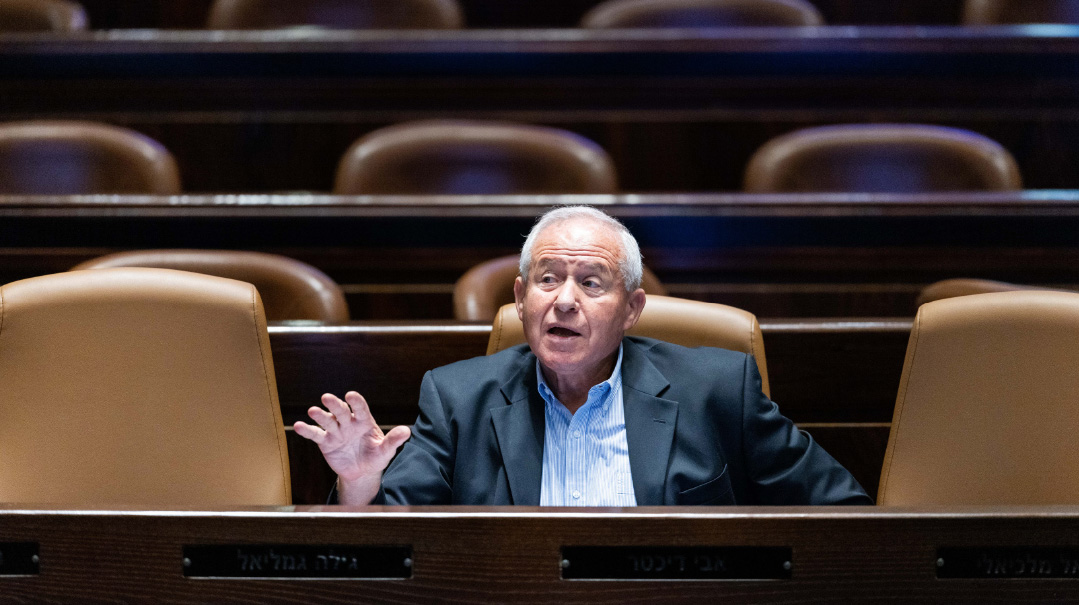Heating Up on All Fronts

Difficult days are still ahead of us, perhaps in the not-too-distant future

1
According to reports, the conversation between the prime minister and the Israeli hostage negotiation team last week was a full-on shouting match.
“You’re wimps, you have no idea how to negotiate,” Netanyahu was heard to say. “Instead of putting pressure on me, put pressure on Sinwar.”
The prime minister slammed the negotiators for pushing for a hostage deal that failed to meet his core demands: a commitment to continue the war and Israeli control of the Philadelphi Route, the smuggling route between Gaza and Egypt.
It didn’t last long, but for a few days, Israel regained the October 8 atmosphere of togetherness — except this time we were brought together by pride rather than pain. Israeli initiative, creativity, and siyata d’Shmaya — everything we were famed for until last Simchas Torah — enabled the stunning elimination of two terrorist leaders. The deaths of Hamas’s Ismail Haniyeh in Tehran and Hezbollah’s Fuad Shukr in Lebanon made the world a better place, and Israel a happier one, at least for one evening.
Looking back over the past ten months, Israel has made some not-insignificant achievements. Four of Hamas’s five highest-ranking leaders have been eliminated in a campaign of revenge that has spanned multiple enemy countries. Gaza is split in two, the Philadelphi Route is under IDF control, and in their response to an assassination that would once have had sirens going off across the country, Hamas wasn’t able to fire a single rocket toward central Israel.
But while it’s a reason to perk up a bit, it’s too early to celebrate. Difficult days are still ahead of us, perhaps in the not-too-distant future — indeed, recent days have been a microcosm of the past few months, with joy turning to grief and vice versa often in the span of several hours.
Netanyahu himself has been enduring massive cognitive dissonance, returning from the applause on Capitol Hill to the protests and internal divisions in Israel.
Israel’s unequal treatment of Gaza and Lebanon was evident in Netanyahu’s Congressional address. Netanyahu spoke of Gaza in terms of “total victory,” of Lebanon in terms of a political arrangement. If in the south Netanyahu is perceived as holding up a deal that would lead to a cessation of hostilities, in the north, Netanyahu is perceived as responsible for having staved off an escalation over the past ten months.
On October 8, Bibi, with help from Gadi Eizenkot, Benny Gantz, and Aryeh Deri, rejected the plan presented by Defense Minister Yoav Gallant and the chief of staff for a preemptive strike against Hezbollah. Even when Gantz and Eizenkot quit the government, that policy didn’t change. After the strikes on Dahiya and Tehran, Israel is signaling that it sees the episode as closed and has no interest in an escalation. But as of this writing, it doesn’t just depend on Israel.
2
This time, Bibi is alone. Gantz and Eizenkot are gone, Gallant doesn’t respect him, and even Deri is no longer present during limited security deliberations. The Shas chair, who blamed Netanyahu for Gantz’s exit from the government, made it clear at the time of the latter’s resignation that he no longer intends to sit in security forums — not in the political-security cabinet, nor in any other security forum.
The late Arik Sharon, who knew the army better than any chief of staff, was said to have distrusted IDF commanders’ bravado on their forces’ prowess. He’d insist on personally verifying the army’s readiness before it embarked on the 2002 Operation Defensive Shield after meticulous planning and preparation. One could say that today, a disappointed Bibi is wary of dragging the IDF into a war on two fronts. The IDF responded in Lebanon in a focused, measured, and sophisticated way. As far as it depends on Netanyahu, there won’t be a full-scale war in Lebanon and Gaza at the same time.
On the domestic front, as well, last week’s dramatic events delayed the prospect of New Hope chair Gideon Saar joining the coalition as defense minister at the expense of Yoav Gallant. During Bibi’s visit to Washington, it seemed Saar was ready to join the government the moment Bibi made the offer.
For now, last week’s window of opportunity has passed. With the northern front heating up and coalition MKs running around IDF bases behind right-wing rioters, it was deemed unwise to deepen the chaos by sacking the defense minister, especially given how that turned out last time. To quote Jabotinsky’s Beitar anthem, “sheket hu refesh [silence is dirt].” To throw dirt at Gallant, Netanyahu will need a few days of quiet first.
3
“Every front is heating up,” Minister Yaakov Margi of Shas, considered one of the more moderate voices around the cabinet table, told me furiously. “And there’s only one place that’s doing business as usual, as if there were no war going on — the State Prosecutor’s Office and the courts.”
Blaming the attorney general and the military prosecutor for all the government’s ills, I told Margi, best sums up of all the current government’s defining failings. Just as with the chareidi draft, for which the government failed to pass a law in time, so with the Nukhba terrorists (l’havdil) — you had nine months to pass legislation ensuring that the Nukhba terrorists would receive the ultimate punishment reserved for Nazis. You didn’t do that, and now you’re coming to the judicial echelon with complaints about enforcing the current law.
“I have to point out that for a year and a half we’ve been getting legal advice from hostile counsel,” he replied. “Our whole legal advisory system hasn’t been on our side during this very challenging time. We put urgent matters on the agenda, but all we get back are empty arguments.”
As it happens, Yisrael Beiteinu chairman Avigdor Lieberman fact-checked that this week, mentioning that a bill designed to ensure justice was done to Nukhba terrorists was in fact proposed, and the person who stopped it in its tracks was none other than Binyamin Netanyahu.
Is there a way to sentence these animals to death under current law? I asked Avichai Mandelblit, the former attorney general and former military advocate general considered Israel’s leading expert on the laws of war.
“Absolutely,” he replied. “You have to understand that this is not a criminal case. This case falls within the most shocking category, that of genocide and crimes against humanity. There are several formulations under which the death penalty could be imposed, whether in the District Court, or in a reconstituted military court in Lod, which was closed in 2000.
“However, this isn’t necessarily just a legal issue. If the prosecution asks for the death penalty, the sentence will come. But first we need to have a serious discussion, hearing the case for and against, to reach a decision at the political level and give the judicial echelon its instructions.”
Objective reasons for holding back on the bill to mete out justice to the Nukhba terrorists aren’t lacking. First and foremost is the fear of Hamas reprisals against the hostages in their custody. As along as a single hostage remains in Hamas’s hands, that’s a risk Israel can’t afford to take.
(Originally featured in Mishpacha, Issue 1023)
Oops! We could not locate your form.







